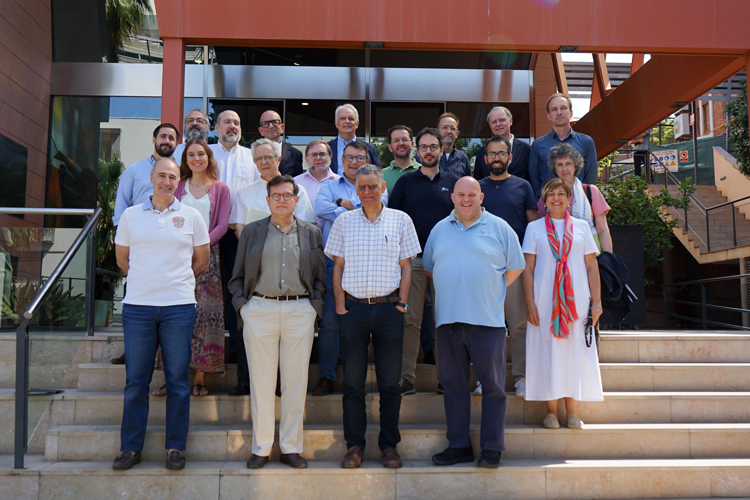With the aim of considering and discussing the challenges in the democratic, social, and identity areas of this post-secular time, the 2nd Symposium of the UNIJES Secularization Group was held on 15 and 16 June.

With the aim of considering and discussing the challenges in the democratic, social, and identity areas of this post-secular time, the 2nd Symposium of the UNIJES Secularization Group was held on 15 and 16 June.
The event was hosted by the IQS Department of Ethics and Christian Thought and was entitled “Challenges for Religion and Spirituality in the Post-Secular Era: Democracy – Identities – Society.” The symposium brought together professors from the areas of humanities, ethics, and sociology from various Jesuit universities (Deusto, Comillas, ESADE, IQS, and Loyola University), as well as independent research staff who are working on this topic and other professors from IQS who joined to listen and participate in some of the presentations.
During the first day, the symposium had an opening discussion chaired by Dr Salvador Borrós, Director of IQS, and also featured Dr Enrique López Viguria, secretary of UNIJES, and Dr Ignacio Sepúlveda, coordinator of UNIJES. Then, Dr Mar Griera, Sociology of Religion professor at the UAB, gave the opening presentation “Challenges of the post-secular era. A sociological look.” The expert presented the role played by religion and spirituality in today's times. Beyond the classic functional triad of religion as a source of belonging, believing, and behaving, we now observe religion experienced in a deinstitutionalized manner, with waves of effervescence linked to specific events, a high dose of subjectivity, and practices that increasingly put the body and emotions at the centre of spirituality.
 The event continued with two further discussions focused on the areas of democracy and society. In total, eight presentations were made, addressing issues such as the tensions experienced by Christian humanism within the emergence of environmentalism, the role played by religion and promises in the growth of extreme political positions, the place that religion should occupy in debates on comprehensive human development and the SDGs, and debates on religious teaching in Spain and Europe.
The event continued with two further discussions focused on the areas of democracy and society. In total, eight presentations were made, addressing issues such as the tensions experienced by Christian humanism within the emergence of environmentalism, the role played by religion and promises in the growth of extreme political positions, the place that religion should occupy in debates on comprehensive human development and the SDGs, and debates on religious teaching in Spain and Europe.
The second day began with a lecture by professor and philosopher Josep Cobo. Cobo, the author of a trilogy on the validity of Christianity today, dedicated his lecture to stating the core facts about Christian truth and what its authentic message means. This presentation featured high philosophical tension that focused on the scandal of Jesus' death on the cross and the biblical question: "Where is your brother?", seeking to understand the central elements of the Judeo-Christian tradition and the difficulties we face because the questions still challenge us today.
A final session with four presentations continued by exploring the role of religion in the construction of identities. This space featured discussions on calling, purpose, and religion as activators of personal processes, the role of emotions and the growth of charismatic and neo-charismatic movements, and the notion of Christian love (agape) addressed by important post-secular authors such as Charles Taylor.
The symposium was concluded by Dr Carlos Losada, a UNIJES representative, who stressed the importance of having a space where we can meet, discuss, and, above all, hold academic reflection on the religious and spiritual realities in our universities, as well as on the necessary collaboration between Jesuit universities which, through different historical traditions and specializations, can see the fruits of their reflections and work multiplied if they commit to working together. This was clearly demonstrated during the two days of intense work that will continue with future publications and meetings of the group.










